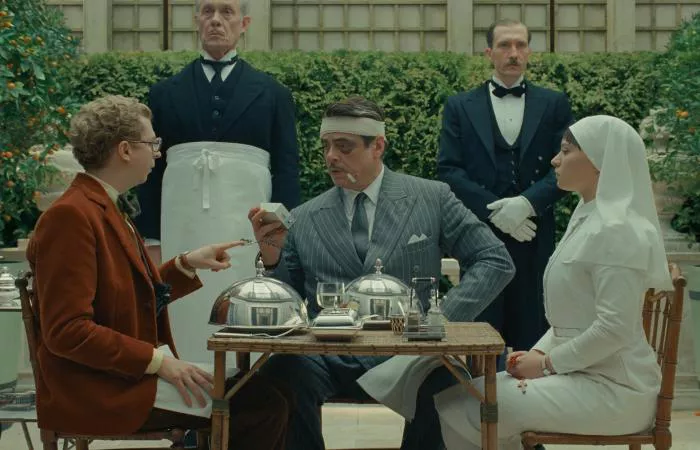LONDON — Wes Anderson has a proposition for Savile Row’s finest tailors: he’s open to a bespoke suit—if the price is right.
“Hopefully, if we put this out there, someone will contact me,” the director quipped during a call from New York. “They’re quite expensive, but as they say, it’ll last a lifetime.”
Known for his meticulously curated aesthetic, Anderson has long been loyal to New York’s Mr. Ned for his custom wardrobe, with occasional detours to Rome’s legendary Battistoni. Yet his latest film, The Phoenician Scheme, has him flirting with London tailoring. The movie, a crime caper set in a fictionalized 1950s Middle East, features an array of sharp suits crafted by East London’s Taillour Ltd., co-founded by Fred Nieddu and Lee Rekert.
Starring Benicio del Toro as business magnate Zsa-zsa Korda—a man dodging assassinations while wheeling and dealing—the film also follows his unlikely entourage: novice nun Leisl (Mia Threapleton) and bumbling tutor Bjorn (Michael Cera). Rounding out the cast are Tom Hanks, Bryan Cranston, and Benedict Cumberbatch as deep-pocketed tycoons, their wardrobes serving as armor in a high-stakes world.
A Lifelong Fascination with Costume
Anderson’s obsession with clothing as character began in childhood. “There were so many costumes in old movies that I tried to imitate,” he recalled. Even his 1993 short Bottle Rocket—later expanded into his feature debut—featured heated debates with co-writer Owen Wilson over a single shirt. “The visual part of the character… I had to coax him into something he’d never wear,” Anderson said.
By Rushmore (1998), Anderson was commissioning custom blazers to embody Jason Schwartzman’s precocious Max Fischer. But it was The Royal Tenenbaums (2001) that cemented his sartorial legacy—so much so that years later, he wore Bill Murray’s exact film jacket during a New York Times interview.
The Power of the Suit
For The Phoenician Scheme, Anderson reunited with four-time Oscar-winning costume designer Milena Canonero (The Grand Budapest Hotel). Their creative clash? Whether all the businessmen should wear identical gray pinstripes.
“I wanted the classic tycoon look,” Anderson explained. “Milena said, ‘That’s a terrible idea—it’s a cliché.’” But to Anderson, suits are armor. “Korda wants all the protection he can get,” he said of del Toro’s character. “Someone’s trying to kill him, and he wants to fight back.”
Canonero’s genius, Anderson noted, was differentiating each tycoon’s silhouette—like Tom Hanks and Bryan Cranston’s sack-suited Americans versus Cumberbatch’s villainous Uncle Nubar, whose jagged stripes telegraph menace.
Storytelling Through Stitching
For Anderson, clothing is never superficial. Richie Tenenbaum’s sweatband in The Royal Tenenbaums hinted at repressed love; M. Gustave’s concierge badge in The Grand Budapest Hotel foreshadowed his secret network. In The Phoenician Scheme, stripes subtly align Korda’s allies—a visual language Anderson likens to “ordering chaos into story.”
“Movies are about watching,” he said. “Every detail is storytelling.”
The Phoenician Scheme is now in theaters across the US and UK.
Related topics:

